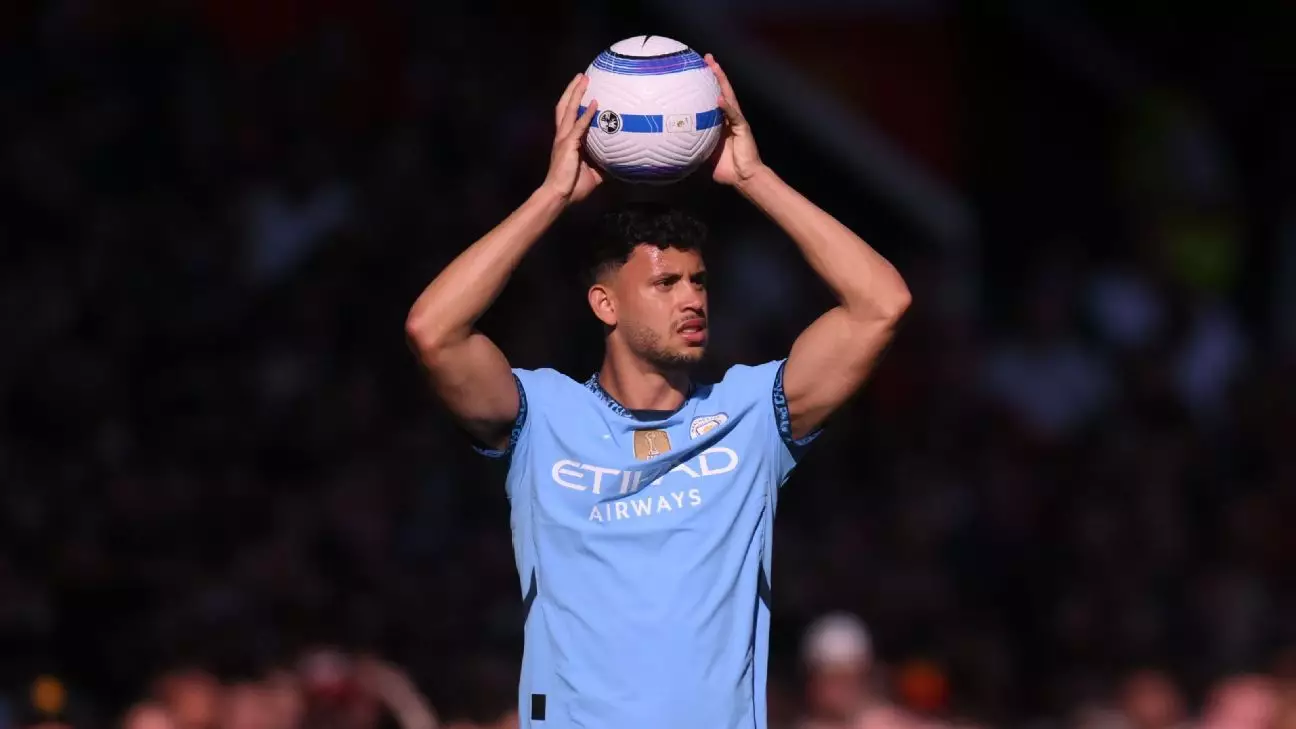In the fast-paced landscape of modern football, adaptability is becoming increasingly essential. Pep Guardiola’s recent remarks about Matheus Nunes illustrate this trend. Nunes, despite his background as a midfielder, is being reshaped into a right-back by the Manchester City manager. This shift raises questions about player versatility and the evolving nature of positions on the pitch. Guardiola’s assertion that Nunes is “not clever enough” for the midfield role may seem harsh, but it actually reflects a strategic decision in response to both the player’s abilities and the team’s needs.
Guardiola’s decision to repurpose Nunes at right-back stems from a pressing need within the team, following Kyle Walker’s loan departure to AC Milan. This move highlights a broader issue within football teams: the necessity to find immediate solutions amid player turnover. The modern game often sees clubs adapting their strategies in real time, forcing players to quickly transition into unfamiliar territories. Nunes’ experience exemplifies how a player, even one touted for a specific position, can find themselves under pressure to master an entirely different role.
The Evolution of Player Identity
The case of Matheus Nunes serves as a crucial example of how player identities are being redefined within the game. With his physicality and athletic background, it seems logical for Guardiola to experiment with Nunes in defense. Yet, this transformation requires a different skill set—in analytical acumen, positioning, and defensive awareness—which traditional midfielders might not possess inherently. Guardiola’s comments, while seemingly critical, may point towards a pioneering approach in player development, where flexibility is just as valuable as specialized skills.
Nunes’ adaptation offers a fresh perspective on the fluidity of modern football roles. Players are no longer confined to predetermined positions; rather, they must develop a wide range of skills to succeed. Guardiola’s confidence in Nunes’ capabilities, despite acknowledging his deficiencies in midfield, suggests that he sees potential where others might simply view limitations. This belief indicates a progressive mindset that prioritizes long-term growth over immediate perfection.
The Role of Coaches in Player Development
Guardiola’s tactical genius is apparent in his willingness to experiment with positions, nudging players toward roles that they may not have considered. Coaches have a responsibility to cultivate players’ skills beyond their comfort zones. By pushing athletes like Nunes into new positions, they not only enhance the team’s tactical flexibility but also broaden the players’ own career trajectories. Such transformations require trust, not only between player and coach but also within the strategic framework of the team.
The recent example of Nunes playing as a right-back in a crucial match against Manchester United illustrated the effectiveness of this innovative approach, where he managed to defend against notable threats. Guardiola’s acknowledgment of the surprising success in altering Nunes’ role encapsulates the idea that sometimes, the road less traveled can lead to exceptional outcomes.
In essence, Matheus Nunes’ journey from midfielder to right-back is not just about filling a gap; it’s emblematic of a larger trend within football that embraces fluid roles, thus challenging players to evolve in order to thrive in a demanding sport. This evolution reflects a commitment to leveraging innate abilities and physical attributes, celebrating the multifaceted nature of the game.

